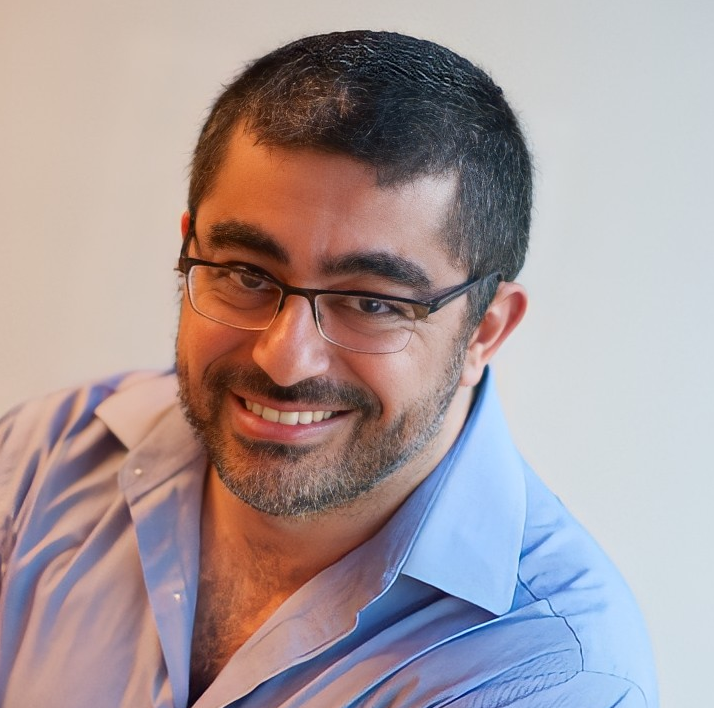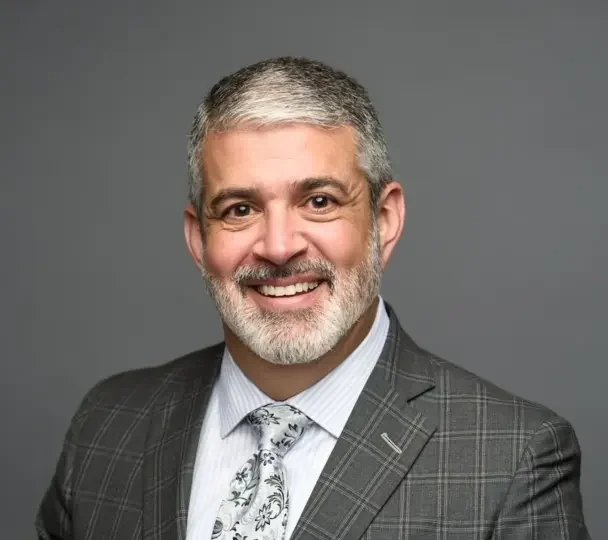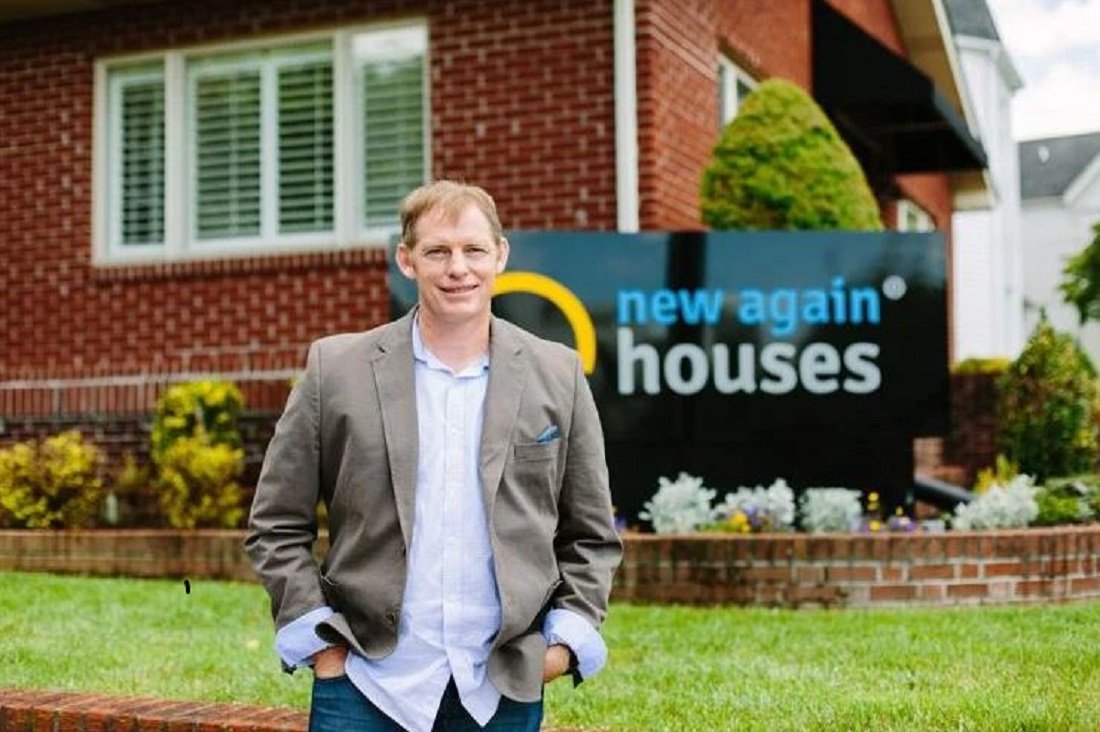
I recently went one on one with Mike Davis, founding partner of Olive Tree Ridge.
Adam: Thanks again for taking the time to share your advice. First things first, though, I am sure readers would love to learn more about you. How did you get here? What experiences, failures, setbacks, or challenges have been most instrumental to your growth?
Mike: Thanks, Adam. It’s a pleasure to have this interview with you. I’d like to talk about my latest project called Olive Tree Ridge (OTR). I have been working on it for three years now, and it has evolved significantly from its initial idea. OTR is a combination of an asset management business and an investment bank, with a specific focus on bridging or eliminating barriers for women and immigrants.
For me, reaching this point has been a journey. It represents the culmination of my personal upbringing, professional experiences, values, and mission. It’s about how the experiences, trials, and tribulations I encountered during my upbringing and early career years have shaped and manifested in OTR. The idea is to create a world where others don’t have to face the same barriers and challenges I did, essentially paying it forward.
To give a broader overview of how I got here, it’s helpful to break it down into the key experiences. First, I immigrated to the US from Iran with my parents. Being an immigrant is a significant part of my story. Growing up, we spoke Farsi at home and English outside. Living in the Midwest, we were often seen as the “Brown family.” I then went to college at Purdue University. I started there when I was 14 years old. That was a byproduct of my parents being immigrants and focusing on education as a top priority. After college, I moved to New York City, where I had to navigate a professional career while living independently in one of the world’s busiest cities.
This path brought its own unique set of challenges, including understanding local business culture and overcoming obstacles. These experiences have shaped the mission of OTR, which is to remove barriers for women and immigrants. My goal is to dedicate the next chapter of my life to addressing these issues based on my values. Therefore, OTR exclusively works with clients who are women and immigrants. We invest in opportunities that embody accessibility and establish pathways for these communities to access our services. Our mission is also reflected in the asset management side of OTR, where we invest in companies actively working to remove barriers for their customers.
OTR is the result of a journey that combines personal experiences, professional growth and a strong desire to create positive change. By focusing on women and immigrants and investing in companies with similar values, we aim to break down barriers and create a more inclusive world.
Adam: In your experience, what are the key steps to growing and scaling your business?
Mike: There is an often overlooked prerequisite for scaling a business, which is ensuring a strong product-market fit. It is crucial to determine if there is a customer base for what you are offering. In our case, we focus on women and immigrants who face barriers. The primary question is whether we can effectively remove those barriers for them. This is the initial and fundamental consideration.
The second question is whether we can do so in a way that supports positive unit economics. Essentially, it means ensuring our costs are viable compared to what women and immigrants are able to pay. If the costs outweigh their ability to afford it, scaling the business is not wise. Therefore, it is essential to have sound fundamentals and economic feasibility when delivering the product.
Scaling the business itself has been relatively easier for us. When we successfully remove barriers for one woman or immigrant, they often connect us with others who are experiencing similar challenges. This builds a network of customers who trust us based on shared experiences. It has been a fortunate aspect of our business that our customers are interconnected. It really helps in expanding our reach.
However, it is crucial not to take this for granted. Investing in our business is essential. We work with exceptional PR agencies, transaction support professionals, lawyers, fund administrators, and accountants who all understand and support our mission. They each have a vested interest in the success and scalability of our product, which is enabling women and immigrants to overcome barriers and achieve success and wealth creation.
So, I would say the keys to success for scaling a business are evaluating product-market fit and figuring out how to deliver the product economically. Once these fundamentals are established, leveraging connections and investing in the business becomes pivotal to achieving growth and making a positive impact.
Adam: What do you believe are the defining qualities of an effective leader?
Mike: I am committed to embodying my values and leading by example, bringing authenticity and transparency to all my endeavors. I firmly believe that true success as an entrepreneur lies in the seamless integration of my personal and professional identities. This synergy is vital, as it challenges me to genuinely show up in every aspect of my life. Therefore, I consistently emphasize the significance of staying true to your stakeholders – and true to yourself.
When I assist entrepreneurs in developing their unit economics, I often draw examples from their personal lives. For instance, I may illustrate how living within one’s means is essential in personal finances. This concept of unit economics can be a complex and abstract idea for some. It becomes easier to grasp when we can connect it to our lived experiences or real-world analogies. These examples may not always be positive. I share lessons from my own experiences, highlighting mistakes or circumstances to avoid. This is what I mean by showing up authentically—providing both positive and negative insights and learnings.
Authenticity is not about presenting a perfect image of ourselves or pretending everything is always going well. There are times when I may be having a bad day. The same goes for others. How we show up as leaders can be influenced by those circumstances. It is only fair and honest to acknowledge and address them. This acknowledgment is an important part of leading with integrity.
Adam: How can leaders and aspiring leaders take their leadership skills to the next level?
Mike: Leaders and aspiring leaders can elevate their leadership skills by focusing on two key areas: tactical skills and continuous learning.
Tactical skills are those that can only be gained through lived experience. This is where coaches, advisors and mentors play an important role. These individuals have inevitably encountered diverse situations and can share their knowledge and experiences. This transaction effectively transfers wisdom. Throughout history, storytelling has been an essential method of knowledge transmission before the advent of written language. Therefore, learning from others’ stories and experiences can greatly enhance leadership abilities.
Continuous learning is another vital aspect. Obtaining a degree or completing formal education is not the endpoint of learning. To truly take leadership skills to the next level, a commitment to ongoing education is essential. Education should be viewed as a lifelong journey. Stagnating at a certain point – whether it is from a degree or a specific year – carries the risk of becoming irrelevant. Leaders must embrace continuous learning, consistently acquiring new knowledge and skills. This mindset allows for personal growth, keeping leaders adaptable and open to improvement.
It is, therefore, crucial to avoid rigid thinking. We need to destroy the belief that one’s own way is always the best way. Leaders should adopt a mindset that acknowledges their own approach as one way among many. We must recognize there is always room for improvement. Acquiring new skills and learning from individuals who possess greater expertise and share similar values can help leaders refine their own methods and elevate their leadership capabilities.
Adam: What are your three best tips applicable to entrepreneurs, executives, and civic leaders?
Mike: To enhance your journey as a leader, I have three key tips to consider:
Tip 1: Align your values and passions with your work: Ensure how you spend your time, as well as the projects you pursue, reflect your value. They should ignite your passion. When there is alignment between your work and what you truly believe in, you will experience less second-guessing and decision fatigue. By focusing on work that resonates with your values, you can eliminate clutter and stay focused on what truly matters.
Tip 2: Embrace the power of passion: Building anything from scratch requires significant effort and energy. When you are working on a project that aligns with your passion, you will find you have more energy at the end of the day than at the beginning. Doing what you love throughout the day leads to a sense of fulfillment and minimizes work-related bad days. It is a blessing to wake up every day knowing your tasks and efforts contribute to making the world a better place according to your values and passions.
Tip 3: Seek guidance and support: It is important to have coaches, mentors and advisors who align with your values and represent the level of excellence you aspire to achieve. Surround yourself with individuals who not only share your worldview but are also more knowledgeable and capable than you are. These guides will help you sharpen your skills, broaden your perspectives and uplift your abilities. The mutual benefits arise from the passion you bring to the work and the optimism they witness.
Adam: What is your best advice on building, leading, and managing teams?
Mike: To create an environment of trust and empowerment within a team, it is important to strike a balance between trust and verification. Ronald Reagan once said, “Trust but verify.”
I believe in trusting my team members to do their work. I define what success looks like and provide them with the time, space and resources to achieve that success. It is crucial not to be overly prescriptive, especially when working with capable individuals who possess high emotional intelligence and intelligence quotient. Being overly prescriptive stifles creativity and hinders motivation. Instead, I prefer to offer guidance and allow leverage for team members to bring their own perspectives and ideas to the table. This approach fosters trust and encourages individuals to take ownership of their work.
Trusting my team means giving them the freedom to operate and make decisions. If I didn’t trust them, I would be constantly micromanaging their every move. However, when values and mission are aligned – and everyone is working towards a shared goal – there is a mutual understanding and trust between team members. This trust extends beyond the professional realm and acknowledges team members have personal lives and commitments outside of work. I recognize they may have family responsibilities or personal appointments. I encourage them to prioritize these aspects of their lives. This understanding helps build a stronger bond and reinforces the culture of trust within the team.
By fostering an environment of trust and empowerment, teams can thrive and achieve collective success.
Adam: What are your best tips on the topics of sales, marketing, and branding?
Mike: Hiring an effective PR firm has transformed the way we approach sales, marketing and branding and allowed us to consistently deliver our message across stakeholder groups. I attribute a significant portion of OTR’s success, repeat clients and constant new introductions to our unwavering focus on our mission and vision. Our primary objective is delivering exceptional experiences that produce the desired outcomes for our customers, particularly women and immigrants seeking access to capital markets. While various metrics can be used to gauge success, our core service revolves around providing capital introductions. Through this process, we can identify the tools and capital our clients need to grow their businesses. When this happens, we consider ourselves successful. As a result, I can allocate less time to worrying about marketing and sales and more time to refining our service offering.
When OTR first started, it was an extension of who I am as an individual. However, as our team has grown, the company now represents the values and mission we share collectively. The approach is rather self-reinforcing. As we continue to stay true to our shared values and mission, the more successes we achieve. The more successes we achieve, the stronger our brand becomes. The stronger our brand becomes, the more barriers we can remove for women and immigrants.
Adam: What is the single best piece of advice you have ever received?
Mike: The best advice I ever received was to prioritize telegraphing our intentions. One of the key principles I follow is being consistently transparent in my actions and plans. I ensure everyone I work with – including partners, transaction support teams, operators and portfolio companies – is well aware of our decisions and the direction we’re taking. We make a concerted effort to telegraph our moves effectively, leaving no room for surprises. Our mission – and the world we aspire to create or change – are crystal clear.
We gauge our success based on one simple criterion: the complete elimination of barriers for women and immigrants. It’s that straightforward.
Adam: Is there anything else you would like to share?
Mike: I genuinely want to provide assistance to clients and I consistently ask myself these important questions: How can I be helpful? How can I best support their needs?
When I urge clients to reach out, it’s not just empty words. By asking for input and seeking challenges, these conversations play a vital role in informing my team and I. The feedback loops help us understand the obstacles people face, allowing us to shape our product roadmap and bring effective solutions to the market.
Similarly, people’s requests for help, such as fundraising, have been tremendously valuable. In the first 12 months of launching OTR, we received over $1 billion in requests for help around fundraising. This feedback informs our actions. As a result of the volume of inquiries we received, we established an investment bank and I personally committed myself to continuous learning. This includes obtaining proper licensing and deepening my understanding of the financial regulatory environment. This commitment ensures that I can show up in the way prospective clients desire – and effectively meet the needs of women and immigrants with regards to navigating capital markets.
Lastly, I want to emphasize to your audience that if there is any way I can be helpful to you, please don’t hesitate to ask. Feel free to connect with me on LinkedIn, send me a message, and I’ll be more than happy to provide assistance.








